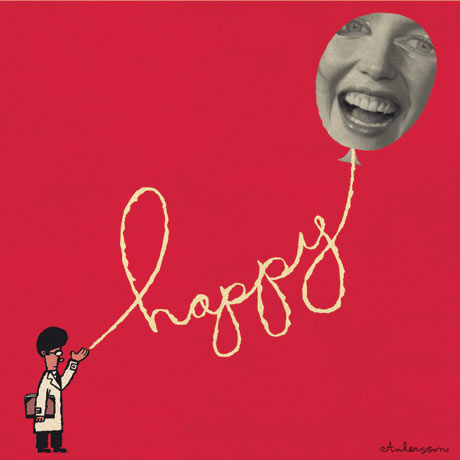
Old psychotherapy joke: midway through a session, the patient cries out, "I'm feeling terrible!" "You're feeling terrible," echoes the therapist, nodding. "I'm going to kill myself!" adds the patient. "You're going to kill yourself," notes the therapist. "Yes! I'm going to do it now!" "You're going to do it now." The patient leaps from the window. The therapist looks down at the street. "Splat," he observes, thoughtfully.
This joke (not hilarious, I know) was meant to satirise Carl Rogers' "non-directive" therapy. But it evokes a broader cliché about the field – of enigmatic exchanges, chin-stroking, long silences – which was surely how most people viewed the subject 30 years ago, in 1980, when a young psychiatrist published Feeling Good: The New Mood Therapy. David Burns didn't invent cognitive therapy, but his book was the first to alert a mass audience to its message: that digging your way from depression to happiness might be a matter of short-term problem-solving, not years on the couch or popping pills. And that you might, partially, be able to do it yourself.
Cognitive therapy's main insight – that how we think about our situation determines how we feel, so by addressing distorted thinking, we can feel better – is now such a self-help mainstay, badly distorted by glib gurus, that it's hard to see as an insight at all. At the time, though, psychotherapy was fixated on unpacking childhood experiences and subconscious drives; thought was seen as a symptom, not a cause. Feeling Good jolts readers to shift their perspective – to observe the often irrational "automatic thoughts" that trigger sadness or anxiety, thereby disidentifying with them.
Burns spent his early career prescribing antidepressants, "but my patients weren't getting better", he told me recently. "I went to the early seminars on cognitive therapy to satisfy myself that it was another approach that wouldn't work. But I passed the techniques to my patients, and people who'd seemed hopeless and stuck for years began to recover." Finding a publisher wasn't easy, and the one he found wouldn't promote it. Eight years after publication, he landed on Phil Donahue's talkshow. "Within 10 minutes, it sold more than in the previous eight years put together." It has been selling, in the millions, since. A startling number of people credit it with changing, even saving, their lives; one set of studies suggests that "prescribing" it may be as effective in treating depression as drugs or psychotherapy.
Maybe each new philosophy of happiness corrects its predecessor's excesses until it, too, needs correcting, and by now the critique of cognitive therapy is well-established. As Darian Leader puts it, it's too often "market-driven", cheaply obliterating the symptoms of suffering without examining its cause – handy for the cash-strapped NHS, where it reigns supreme, or for a society in need of upbeat worker bees, but not so great for patients. Burns agrees (me, too), but Feeling Good, unlike many of its ripoffs, never pretends change is easy, or childhood experience irrelevant. Its point is more modest: that there is a voice in your head that affects how you're feeling, and if you learn to listen, and to realise the voice isn't you, you'll have more power to cultivate a happier inner life. Which is self-help at its best, surely: no gurus, no grand promises – just a different perspective, and a few useful tools.
oliver.burkeman@theguardian.com

